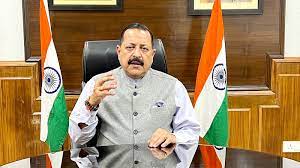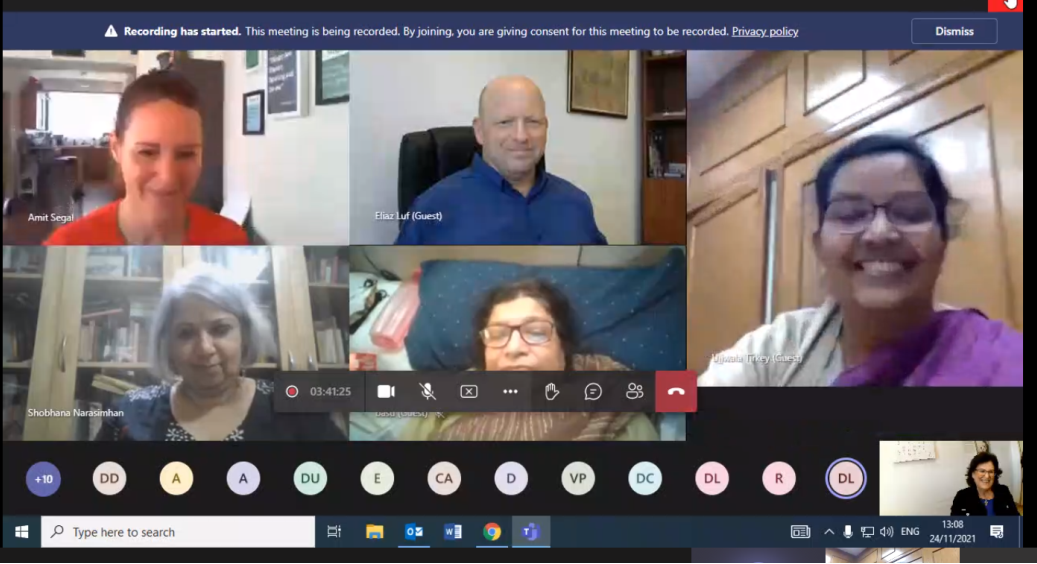The COVID-19 pandemic has made the use of face mask an inevitable part of daily life. However, as the population adjusts to this unavoidable protection gear, it is encountering many a discomfort which hinders its usage to prevent spread of the virus. Some of them are rebreathing of Carbon dioxide (CO2), which may reduce human efficiency and lead to brain-hypoxia due to long hours of usage, moisture in the exhaled breath which makes spectacles foggy, safety issues like sweaty and hot environment inside the mask, clarity in speech of a person with a face mask.
An active respirator mask with attached exhalation valve and suspended particulate matter filter for comfortable and hygienic breathing while wearing masks has been developed by Professor Samir K. Pal & his group under the leadership of Professor Samit Kumar Ray, Director S.N. Bose National Centre For Basic Sciences (SNBNCBS), Kolkata, an autonomous research Institute under the Department of Science and Technology (DST), Government of India. The institute is also hosting one of the Technical Research Centres (TRC) funded by DST. The Active Respirator mask is an innovative solution to the rebreathing of carbon dioxide, exhaled moisture, and sweaty and hot environment inside the mask. It also improves the clarity of speech of a person with a face mask and assures comfortable, hygienic breathing to protect the wearer from exposure to airborne contaminants.
Besides this, a Nano-sanitizer with a Dispensing Antimicrobial Layer has also been developed by the institute. The Long-Lasting Nano-sanitiser innovation is a solution to the problems caused by the use of the general sanitisers like dehydration of skin due to frequent use, and nature of instantaneous antimicrobial action of common sanitisers without protective role. This innovative sanitiser technology assures comfortable and hygienic hand sanitisation for a longer duration.
Both of these have been transferred by the National Research Development Corporation (NRDC), an enterprise of DSIR, Ministry of Science and Technology, Government of India to a Kolkata based company, M/s Paulmech Infrastructure Pvt Ltd. Mr. Shanti Ranjan Paul, Director of the company expressed satisfaction for getting opportunity to take part in the global fight against pandemic COVID-19 in an indigenous way. The target date of launching first batch of both the products is fixed on 15th August 2020, the day of independence of our country.


The Mask Product (Bose-Shield)

The Sanitiser Product (Bosetizer)
The Agreement for technology transfer was signed by Dr H Purushotham, CMD, NRDC and Shri Shanti Ranjan Paul, Director, M/s Paulmech Infrastructure Pvt Ltd online in the digital presence of Professor Ashutosh Sharma, Secretary, DST, Government Of India and Prof. Samit Kumar Ray, Director, S.N. Bose National Centre for Basic Sciences, Scientist Professor Samir Kumar Pal, Registrar Ms Shohini Majumder, Dr Soumen Mondal, Nodal officer of Technical Research Centre (TRC) of S.N. Bose National Centre for Basic Sciences, Priyankan S. Sharma, Somavo Gupta of Paulmech Company and senior officials of DST.
Use of these innovative products will help the users in overcoming the existing problems with masks and sanitisers available in the market. Prof. Ashutosh Sharma, Secretary DST congratulated all the stakeholders for bringing the fruits of Science and Technology to benefit society. Prof. Samit K Ray, Director, S. N. Bose Centre, acknowledged the generous funding of DST in establishing the TRC in a basic Science institute.
 Indian Industry Plus A Pratisrutiplus Suppliment
Indian Industry Plus A Pratisrutiplus Suppliment


















